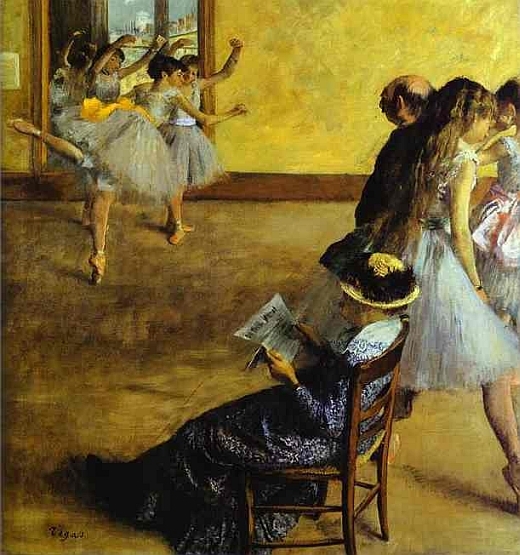
Mallarmé lui répondit: « Ce n’est point avec des idées, mon cher Degas, que l’on fair des vers. C’est avec des mots. »
Mallarmé avait raison. Mais quand Degas parlait d’idées, il pensait cependant à des discourses intérieurs ou à des images, qui, après tout, eussent pu s’exprimer en mots. Mais ces mots, mais ces phrases intimes qu’il appelait ses idées, toutes ces intentions et ces perceptions de l’esprit—tout cela ne fait pas des vers. Il y a donc autre chose, une modification, une transformation, brusque ou non, spontanée ou non, laborieuse ou non, qui s’interpose, nécessairement entre cette pensée productrice d’idées, cette activité et cette multiplicité de questions et de resolutions intérieures; et puis, ces discourses si différents des discourses ordinaries que sont les vers, qui sont bizarrement ordonnées, qui ne respondent à aucun besoin, si ce n’est au besoin qu’ils doivent créer eux-mêmes; qui ne parlent jamais que de choses absentes ou de choses profondément et secrètement ressenties; estranges discourses, qui semblent faits par un autre personage que celui qui les dit, et s’adresser à un autre que celui qui les écoute. En somme, c’est un langage dans un langage.
Mallarmé answered him: “It’s not with ideas, my dear Degas, that one makes verse. It’s with words.”
Mallarmé was right. But when Degas spoke of ideas, he was thinking about interior discourses or about images, which, after all, could have been expressed in words. But these words, but these intimate phrases which he called his ideas, all these intentions and these perceptions of the spirit–all of that does not make verse. There is therefore something else, a modification, a transformation, brusque or not, spontaneous or not, laborious or not, which interposes itself, necessarily, between this thought fertile with ideas, this activity and this multiplicity of interior questions and solutions and then these discourses which are so different from the ordinary discourses which make up verse, which are so bizarrely ordered, which don’t correspond to any need, if not the need that they must create themselves; which always only speak of absent things or of the things which are profoundly and secretly experienced; strange discourses which seem crafted by another person than the one who said them, and to address themselves to another person than the one who is hearing them. In sum, it’s a language within a language.
—Paul Valéry, “Poésie et pensée abstraite,” Théorie poétique et esthétique (1939) in: Œuvres, vol. 1, p. 1324 (Pléiade ed. 1957)(S.H./E.H. transl.)


